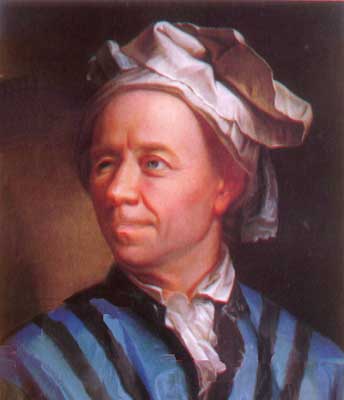
The unplanned impact of maths
What's a particular piece of mathematics good for? It can take decades, or even centuries for an answer to this question to materialise. The power of mathematics is hidden behind a range of unforeseeable applications in the modern world that arise from mathematical discoveries of the past. In today's climate, in which scientific research is increasingly judged according to its impact, this can pose a problem for pure mathematics.
Now a group of mathematicians from the British Society for the History of Mathematics have collected some examples of the unplanned impact of maths, which are reported in the 14th July issue of the journal Nature. Peter Rowlett, who coordinated the collection, said, "Although most mathematicians know that mathematics has this surprising nature, many that I have spoken to aren't aware of more than one or two specific examples. I thought the British Society for the History of Mathematics could help by searching through history for examples that are less well known. We hope this collection will only be the start and that more mathematicians will send their favourite stories to us."

Leonhard Euler 1707 - 1783.
The field of topology is an illustrative example. Started by Leonhard Euler and studied for 250 years as a purely theoretical discipline, it has in the last two decades found applications in areas as diverse as genetics, the study of galaxy formation and robotics. These applications rely on 250 years of pure research, but the advances would not have been made if the researchers had had to justify the planned impact before studying their mathematics.
In technology quaternions, a 19th century discovery which seemed to have no practical value, have turned out to be invaluable to the 21st century computer games industry, while work on the best way to stack oranges started by Kepler in 1611, is essential to modern telecommunications.
Einstein's theory of relativity, which seemed to come as a spark of genius from nowhere, nevertheless drew on abstract geometry developed half a century earlier. Fourier's theory of vibrating strings, via very abstract mathematics in the 20th century, has now yielded new insights into quantum physics.
Gambling on 16th century dice games led to a discovery in mathematical probability that is crucial to the insurance industry, while a recent insight into a quantum theory thought experiment has unexpectedly found applications in the outbreak of viral disease and the risks associated with stock market volatility.
To find out more, read the Nature article (behind a pay wall unfortunately) and if you've got further examples of your own, post a comment here or contact Peter Rowlett on Twitter.
Anonymous
This assumes that this mathematics would not have been developed at an appropriate time when needed.
Presumably if mathematicians had concentrated instead more on things going on at the time, there would also have been faster progress then.
This then does not constitute a satisfactory argument for pure mathematics per se.
Anonymous
It's almost as if these great mathematicians were working on problems just because they were interesting.
Anonymous
University mathematics virtually consists of a glorified mutual admiration society dishing out incomprehensible publications and awarding each other prizes in spite of their members being incapable of identifying the integer triples of the Pythagorean triple theorem. Maths standards generally are unlikely to improve until the university mathematician leaders get their house in order, particularly in separating teaching from research. submitted by Peter L. Griffiths .
Anonymous
Not everything has to have a use...I think this is the point. Are you suggesting that maths is behind everything else in the world at any given time?
We may study things for their own right, without caring that there is some spectacular real world use at the end. It is upto the applied mathematicians, statisticians, engineers, etc to find the uses in the real world.
It has never been about "needing" a particular bit of pure maths, more the discovery that certain things pure mathematicians have known for a long time became useful in the long run.
Anonymous
If mathematicians were only occupied with the currently applicable problems, they would not be as productive as one may think, and it may even stunt overall development.
As Alan Turing has shown, aside from a proof itself, it is impossible to know what the proof of a given problem is - or even if one exists! And that's supposing we even know what the problem is!
Taking the example of Fermat's Last Theorem, many people have spent their lives trying to solve it. When Andrew Wiles discovered a proof, it relied on eliptical curves - which is quite disconnected from the problem. Granted this isn't exactly an applicable solution, but it does demonstrate the point that if it weren't for other mathematicians doing maths unguided by applications, then the result would not be possible.
Although Pure Maths may often appear wasteful of time and efforts, it is key to the advancement of technology.
So lets make sure there's funding for it!
Anonymous
Group and field theories developed in the 19th century played an important role in developing the Standard Model in particle physics.
Anonymous
What use is the link to the article if it takes us to a page demanding we pay $32 for it or subscribe now!
Anonymous
Check with your library. If it doesn't subscribe to Nature, you should be able to get the article via Inter Library Loan.